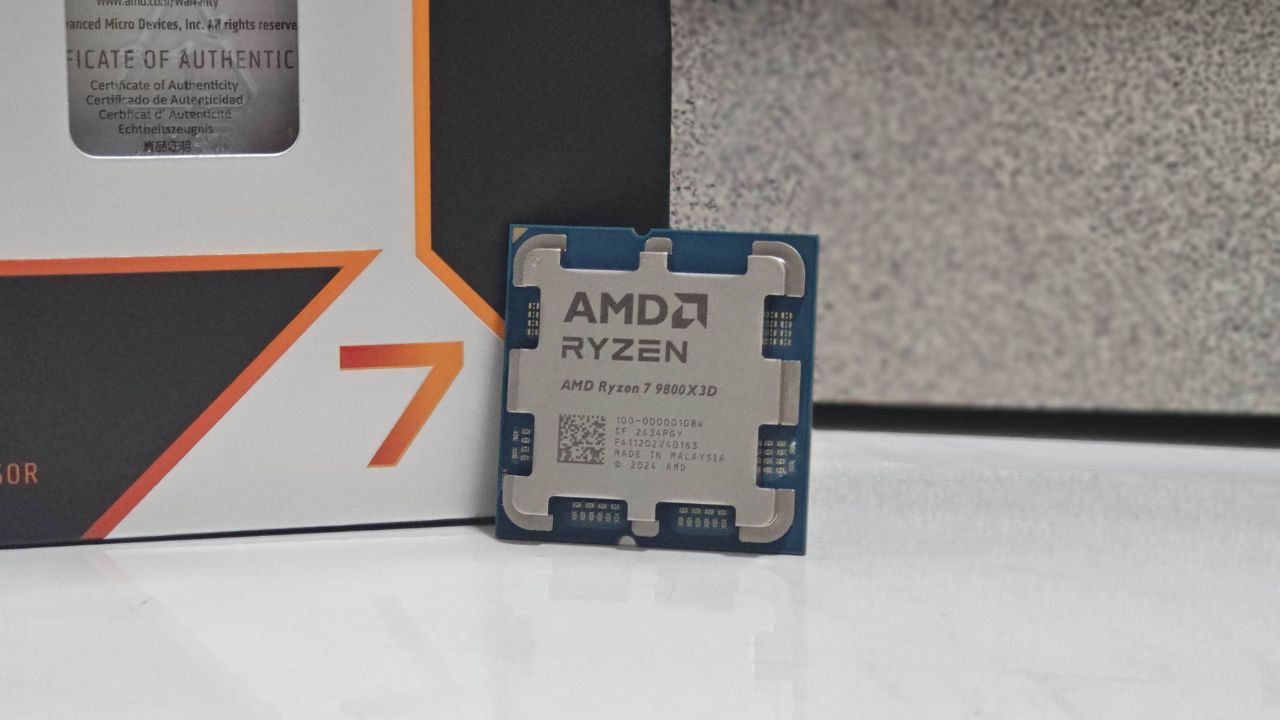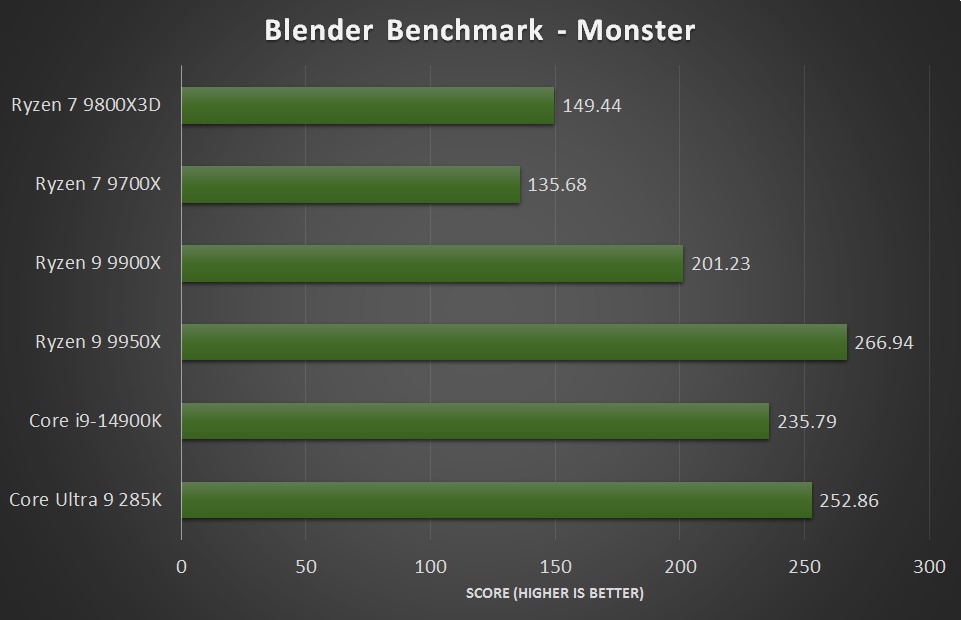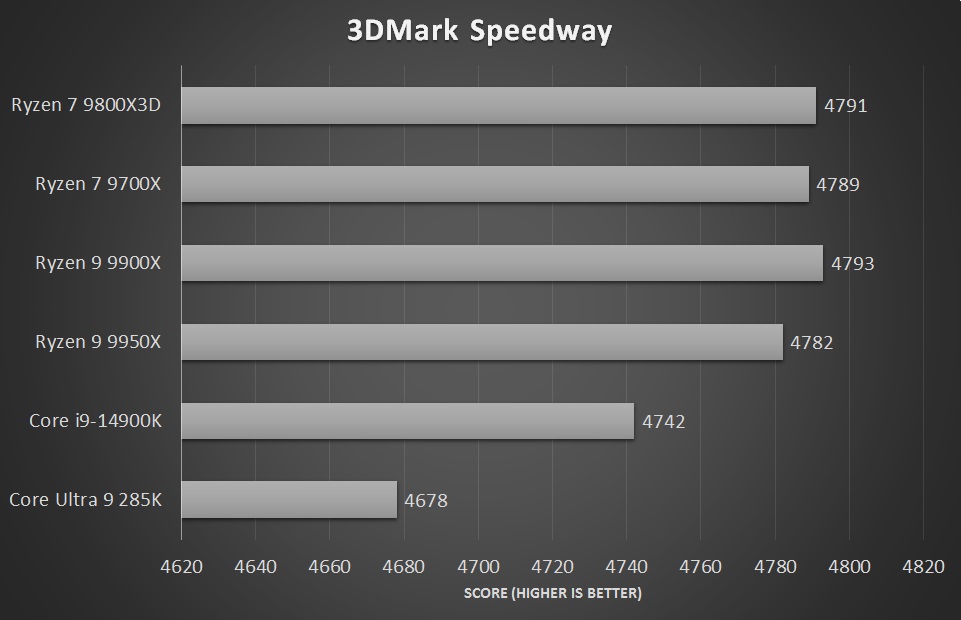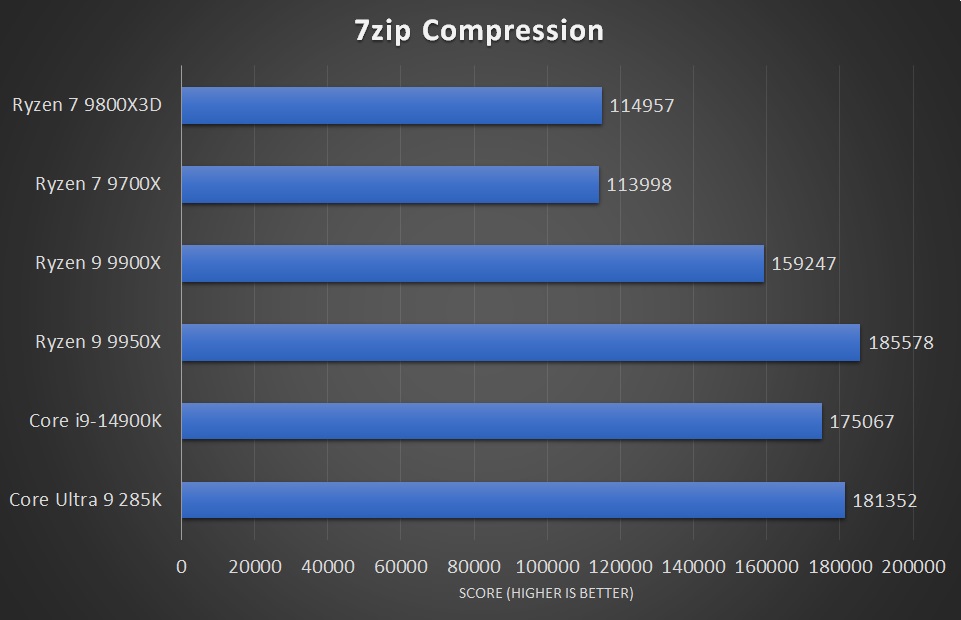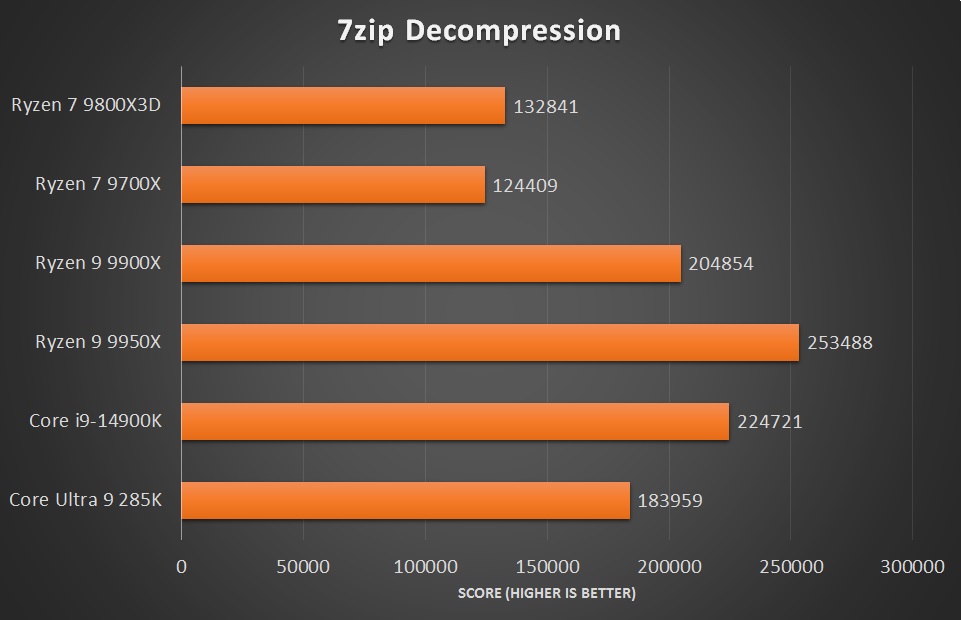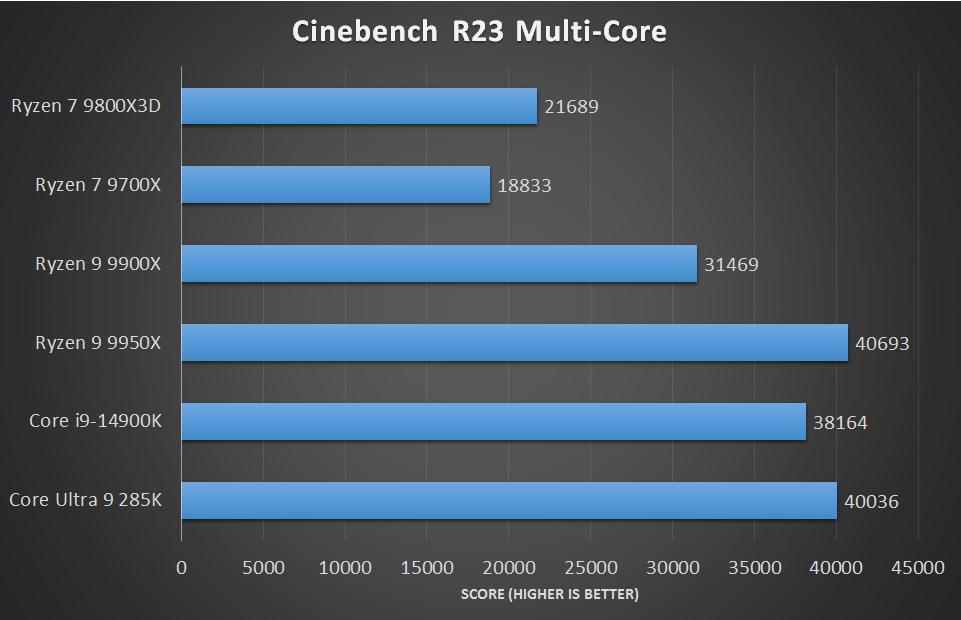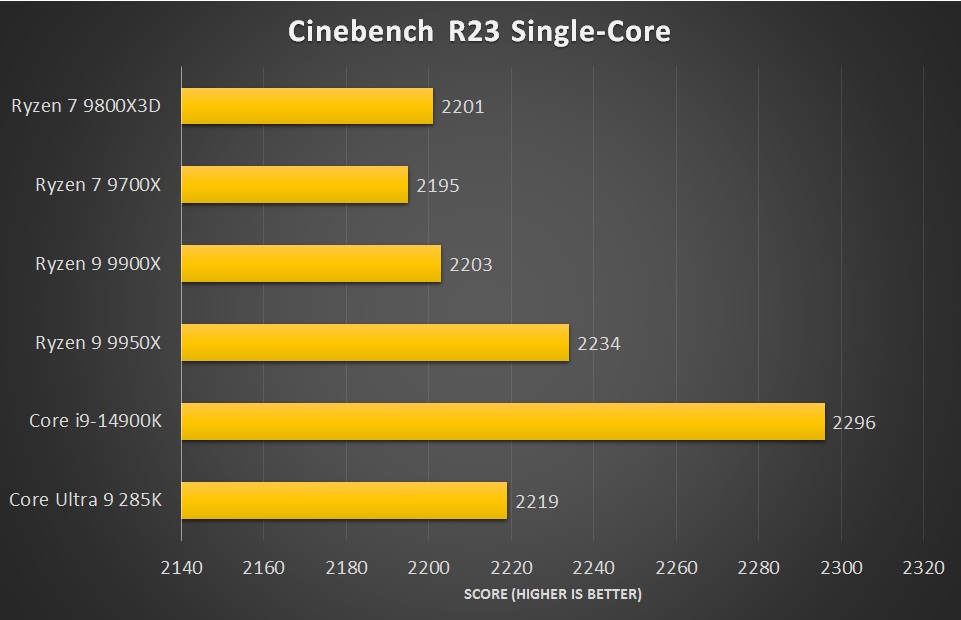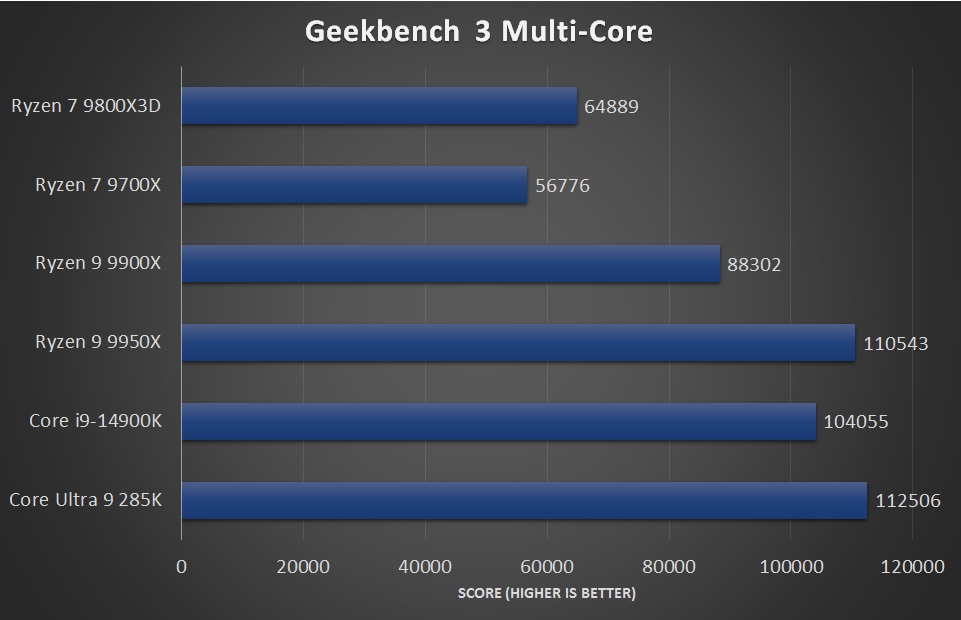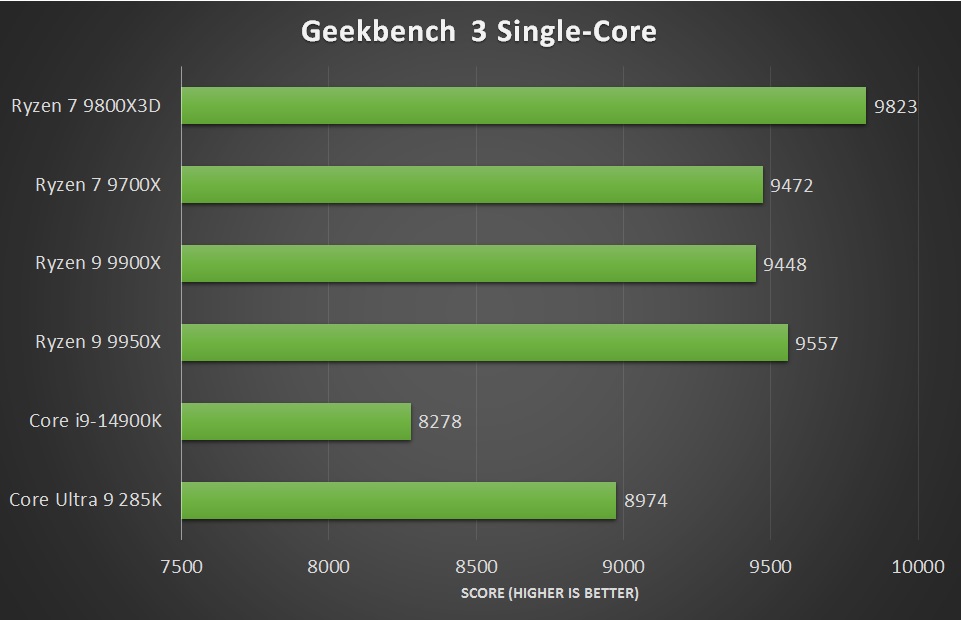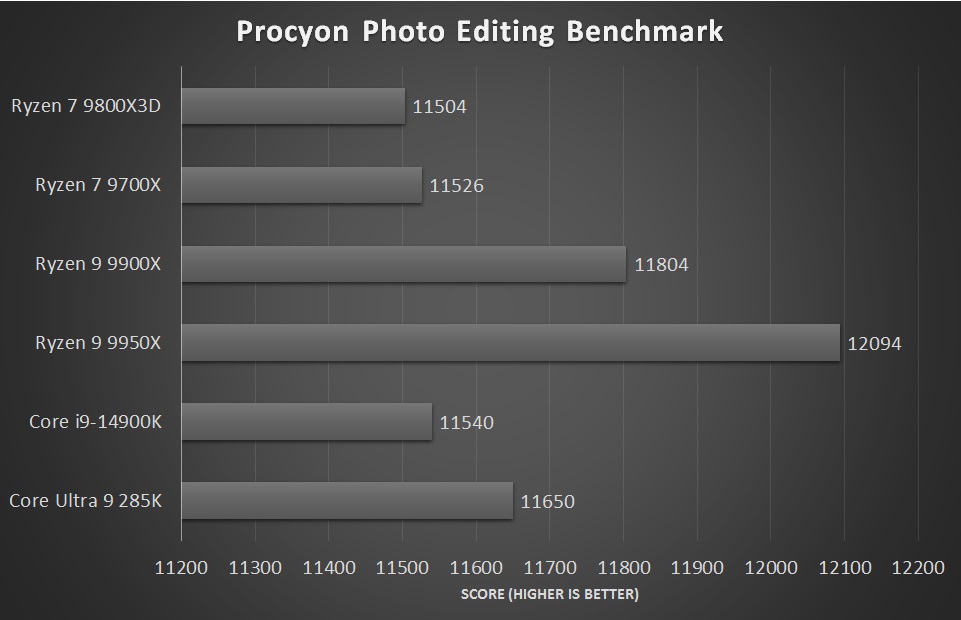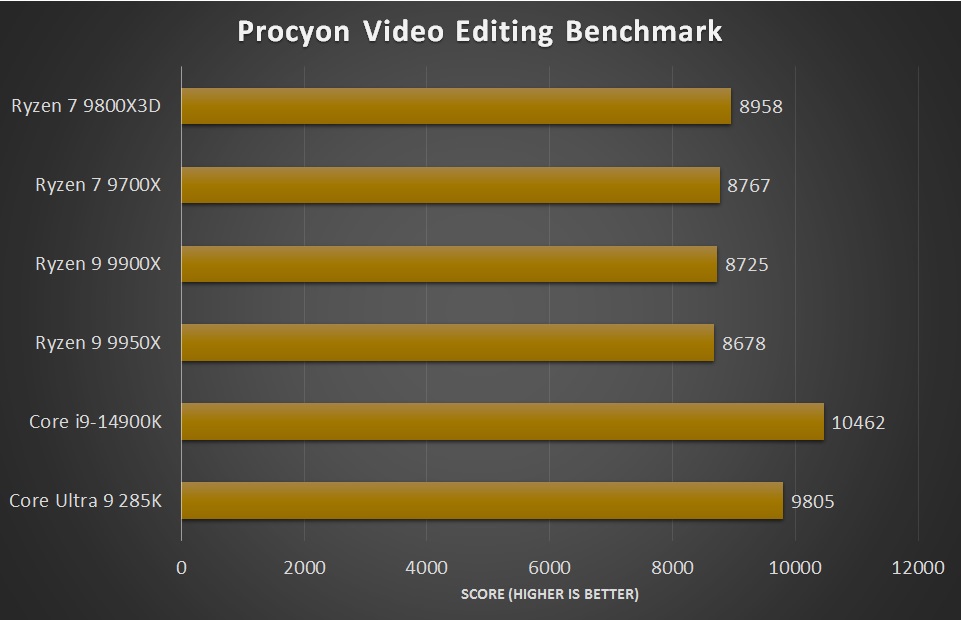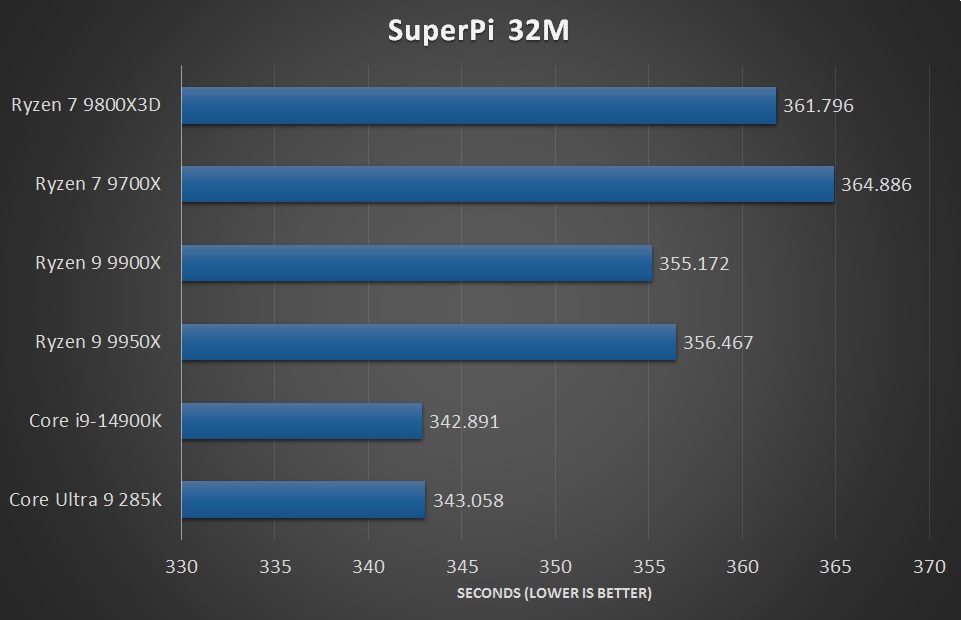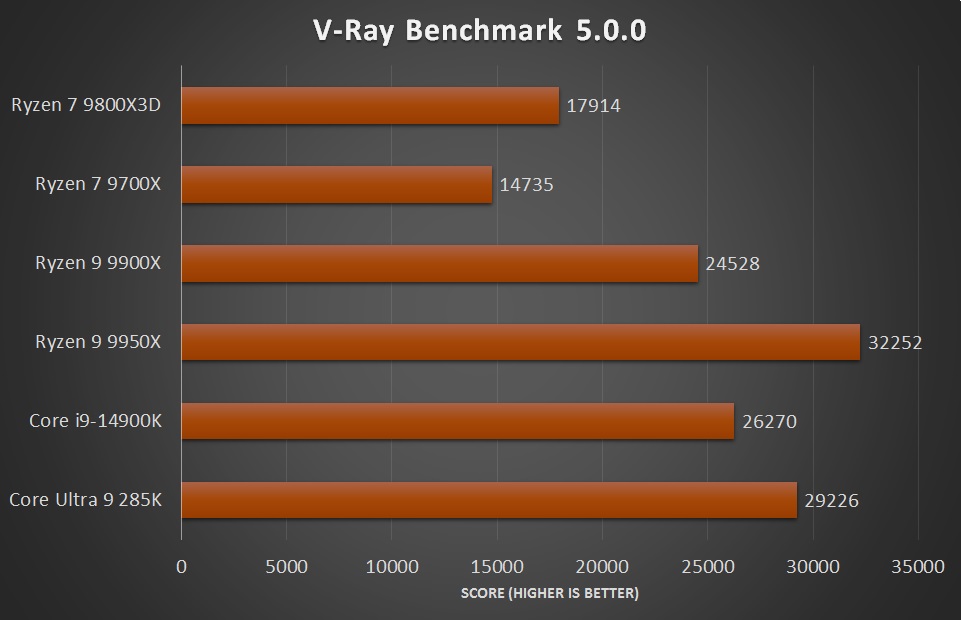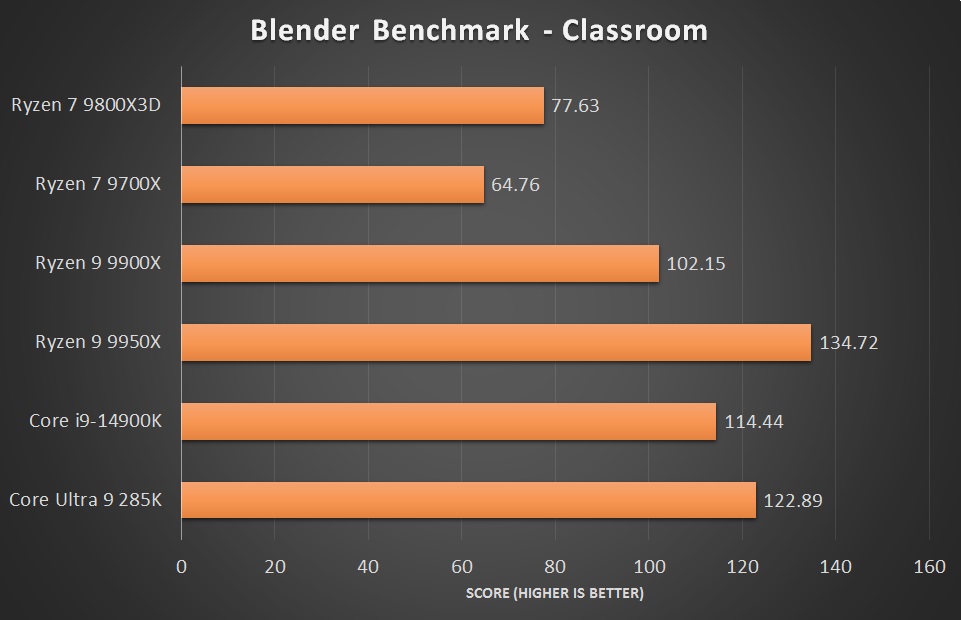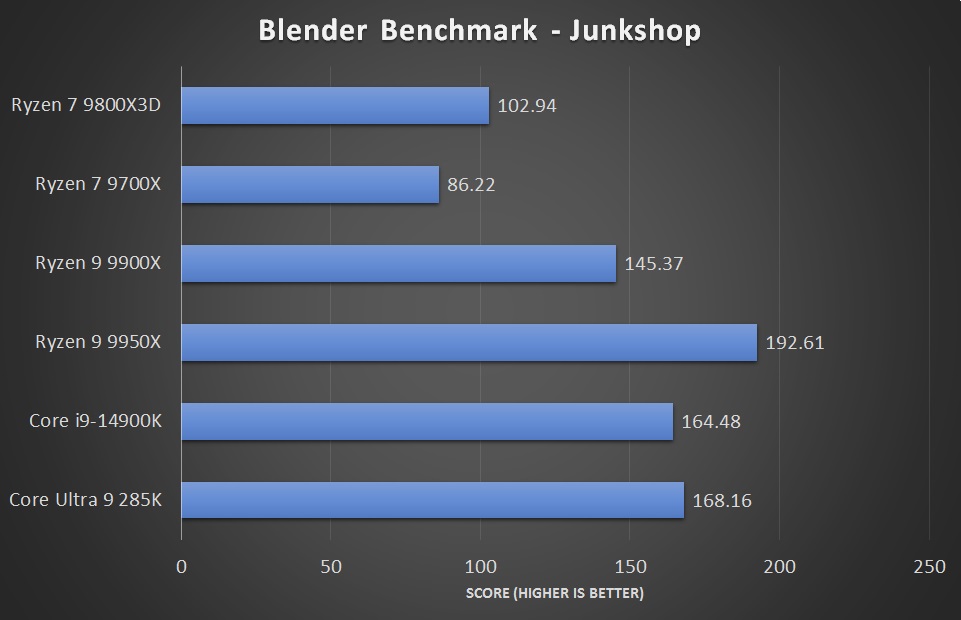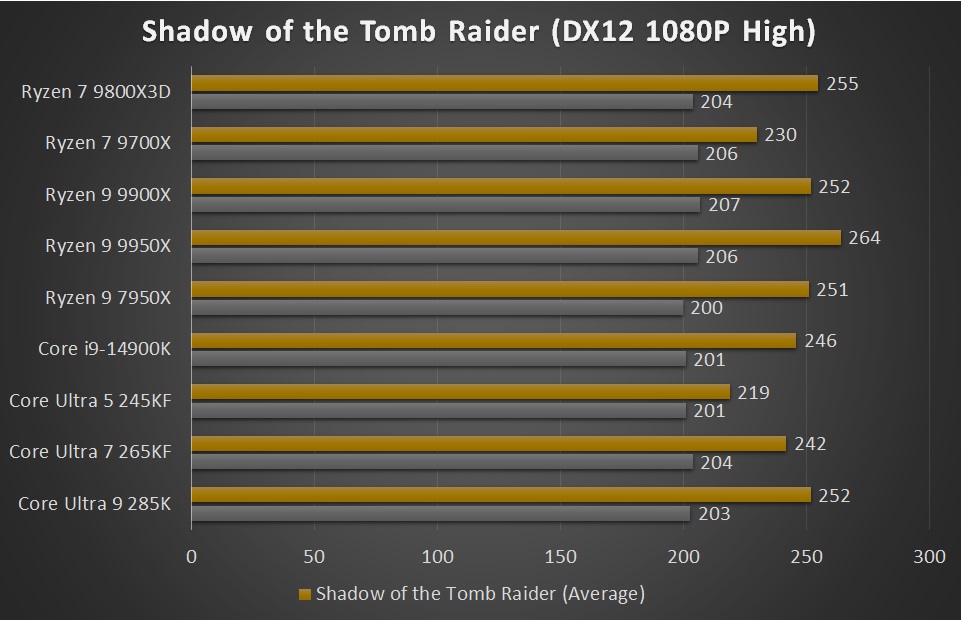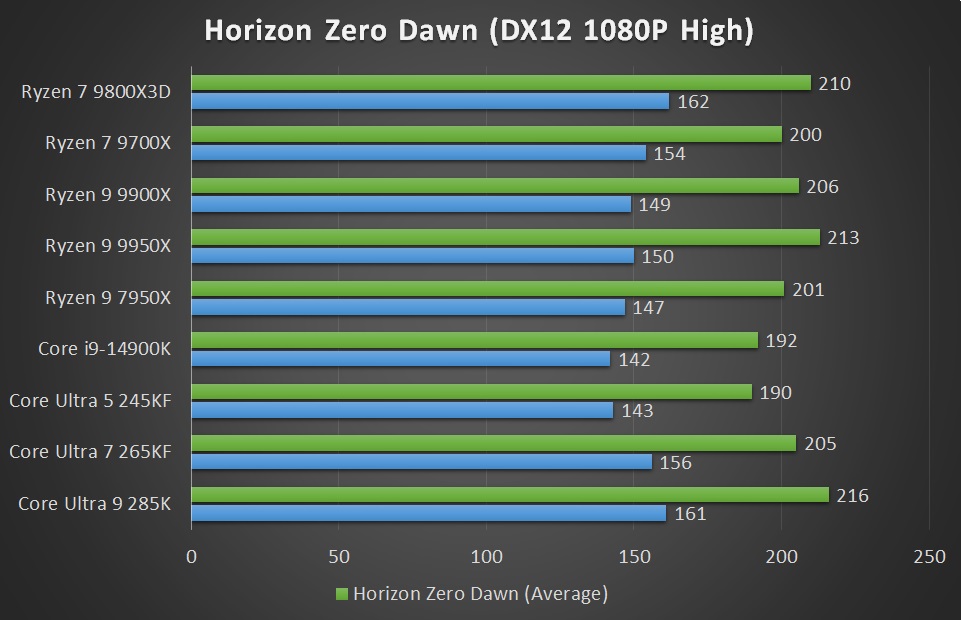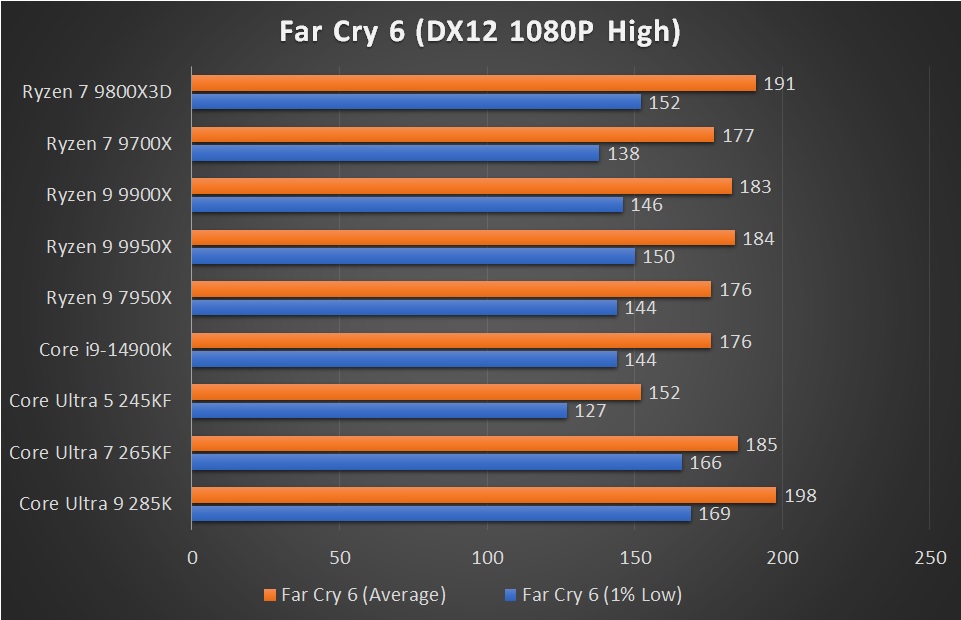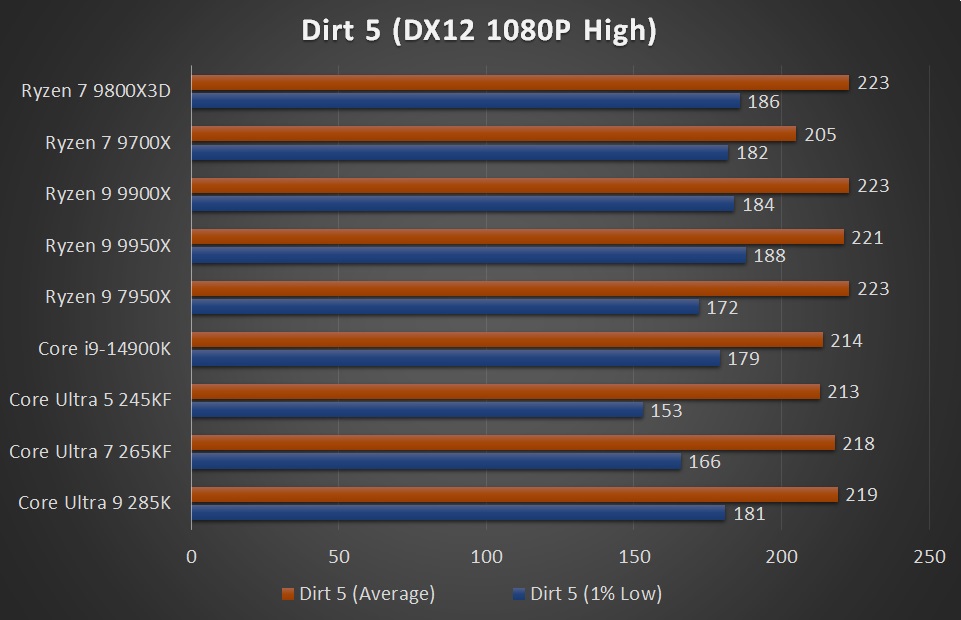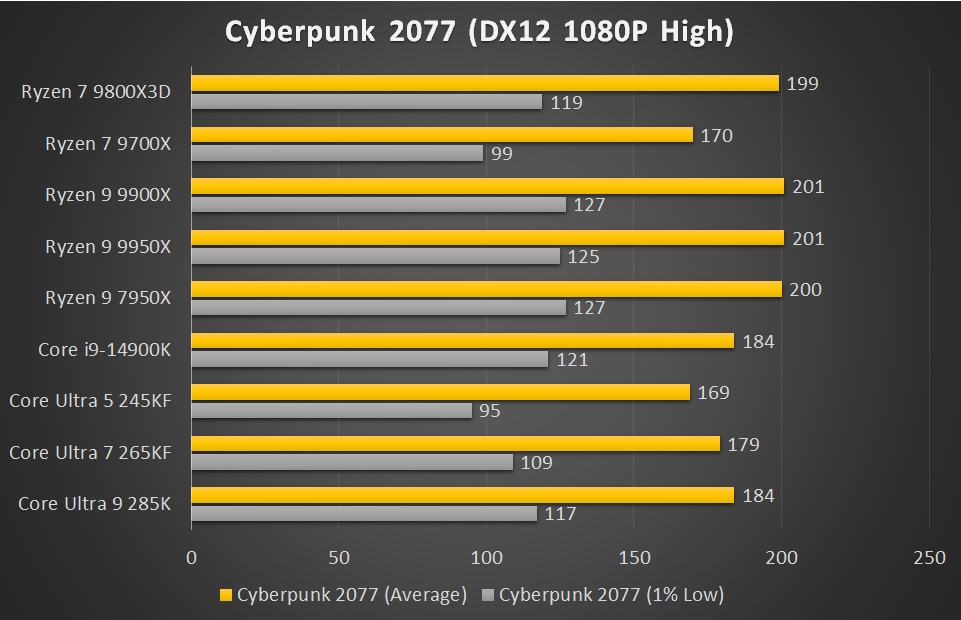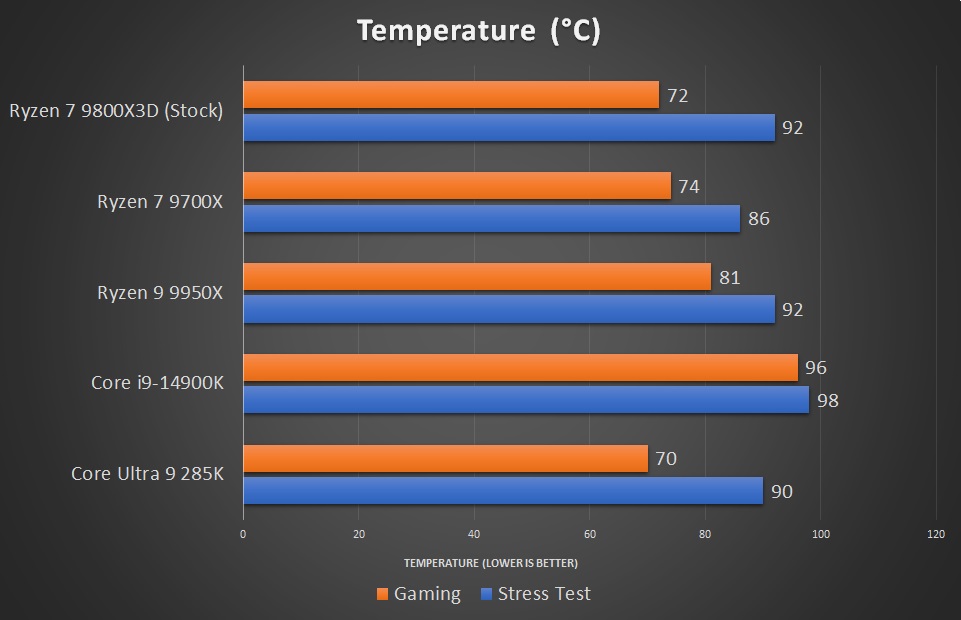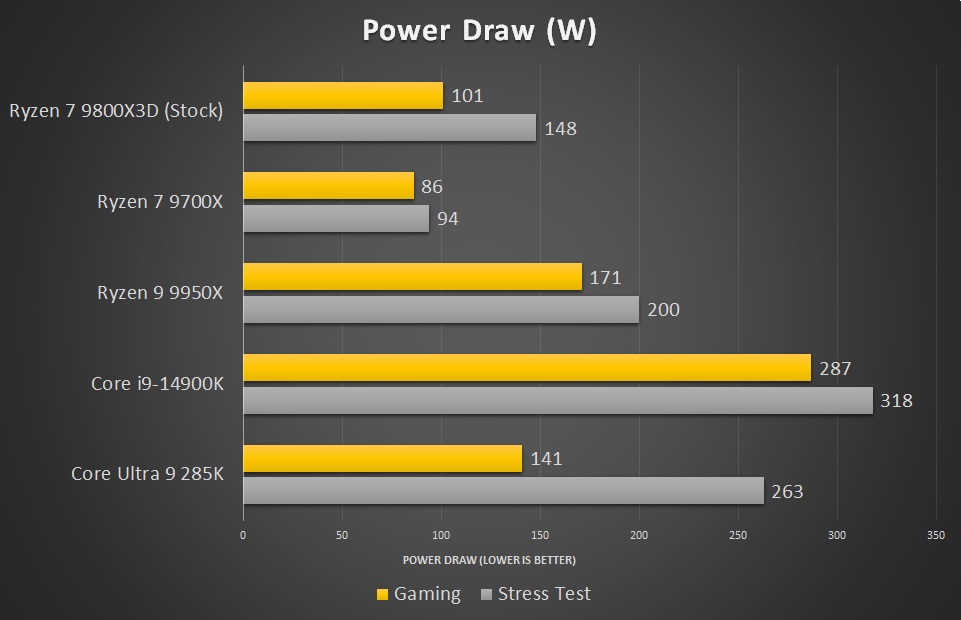AMD dropped an announcement last week regarding its new Ryzen 7 9800X3D, which will be available from tomorrow onwards. As the new addition to AMD’s X3D desktop CPU lineup, the Ryzen 7 9800X3D is targeted at gamers who want to enjoy the best gaming performance Zen 5 can offer right now.
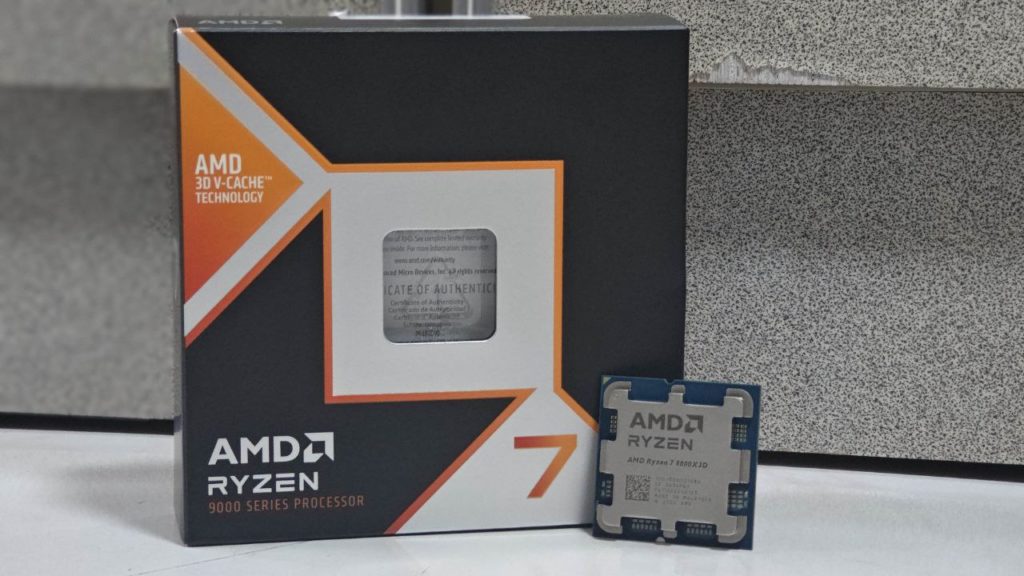
In our past reviews of the Ryzen 7 9700X, we have experienced the improvement the new Zen 5 architecture has to offer, especially the improved power efficiency over its predecessors. The Ryzen 7 9800X3D is equipped with the 2nd Gen AMD 3D V-Cache technology, promising outstanding gaming performance that many gamers eagerly await.
Ryzen 7 9800X3D
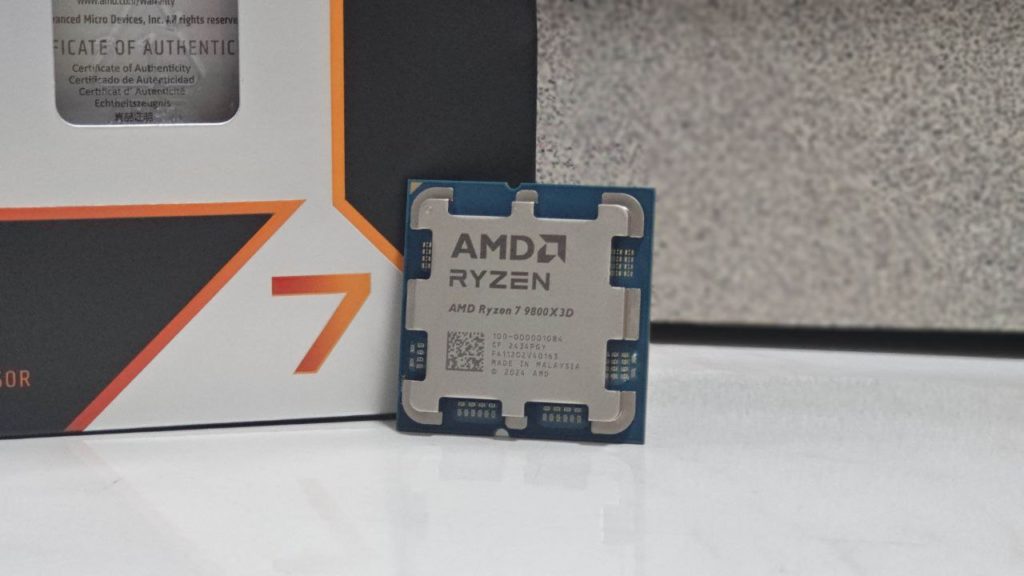
Building on the performance of previous X3D CPUs, we’re eager to see if AMD can keep the momentum with the Ryzen 7 9800X3D. We conducted a series of tests, comparing the 9800X3D to flagship models from both Intel and AMD to gauge its capabilities.
This lineup of benchmarks aims to highlight what kind of performance users can expect from AMD’s latest X3D addition, particularly for gaming and single-core tasks, where prior X3D models have excelled.
| AMD Ryzen 7 9700X | AMD Ryzen 7 9800X3D | |
|---|---|---|
| Cores/ Threads | 8/16 | 8/16 |
| Max Boost | 5.5GHz | 5.2GHz |
| Base Clock | 3.8GHz | 4.7GHz |
| L2 Cache | 8 x 1MB | 8 x 1MB |
| L3 Cache | 32MB | 96MB |
| TDP | 65W | 120W |
| Price | $359 | $479 |
Setup, Testing Methodologies, and Benchmarks
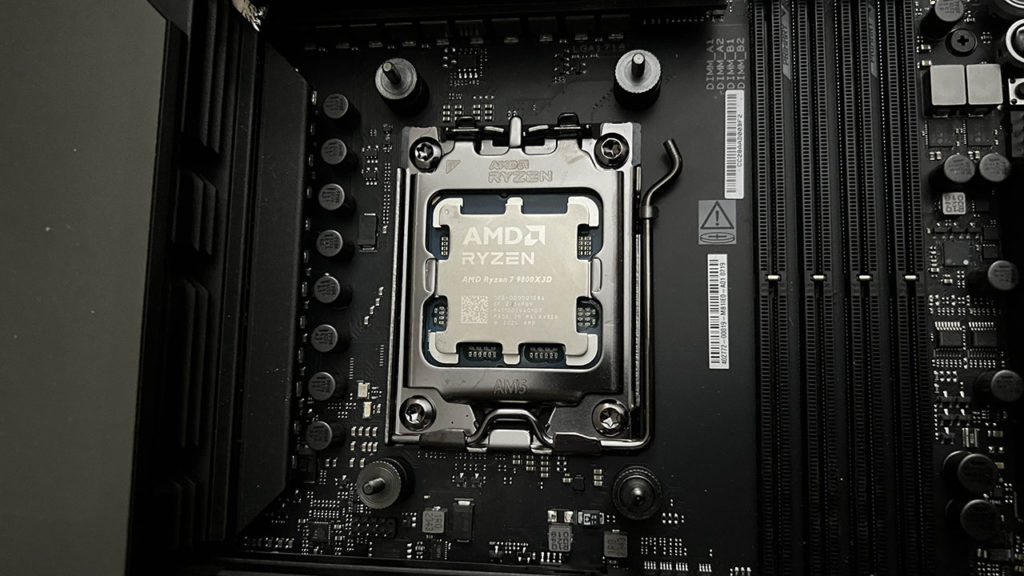
We’re setting up a series of CPU benchmarks and 1080p gaming tests to evaluate performance differences among various processors. At 1080p, performance tends to be CPU-bound, allowing us to assess each CPU’s impact more accurately. The Ryzen 7 9800X3D will be compared against other current-gen Zen 5 CPUs, along with Intel’s Core i9-14900K and Core Ultra 9 285K.
This allows us to gauge the performance differences across the CPUs used and provide a clear view of where the 9800X3D stands in terms of CPU-bound gaming and productivity benchmarks.
| Specs | Comparison System | Main System |
|---|---|---|
| CPU | Intel Core i9-14900K | AMD Ryzen 7 9800X3D |
| Intel Core Ultra 9 285K | AMD Ryzen 7 9700 | |
| Intel Core Ultra 7 265KF | AMD Ryzen 9 9900X | |
| RAM | Kingston Fury Renegade 6000MHz CL28 | G.Skill Trident Z5 Neo 6000MHz CL28 |
| Main Storage | Kingston KC3000 1TB | Samsung 990 Pro 1TB |
| GPU | ASUS ROG GeForce RTX 3080 10G | ASUS ROG GeForce RTX 3080 10G |
| Motherboard | ASUS ROG Maximus Z890 Apex | ASUS ROG Crosshair X870E Hero |
| ASUS ROG Maximus Z790 Apex Encore | ||
| CPU Cooler | Cooler Master MasterLiquid 360 ION | Cooler Master MasterLiquid 360 ION |
| PSU | Cooler Master V1200 | Cooler Master V1200 |
| OS | Windows 11 64-bit | Windows 11 64-bit |
CPU Benchmark
Games Benchmark
Temperature and Power Consumption
The test results highlight the Ryzen 7 9800X3D’s gaming prowess, surpassing the Intel Core i9-14900K and matching the Ryzen 9 9950X and Ryzen 9 9900X in many scenarios. In productivity tasks, however, it offers only marginal gains over the Ryzen 7 9700X and falls behind the Core i9-14900K and both Ryzen 9 models due to its lower core and thread counts.
Power efficiency, a key feature of the Zen 5 lineup, shines here: despite a slightly higher load draw than the 9700X, the 9800X3D reduces gaming power consumption by over 30%, running significantly cooler with our AIO cooler. Note that cooling performance may vary with different setups.
Final Thoughts and Conclusion
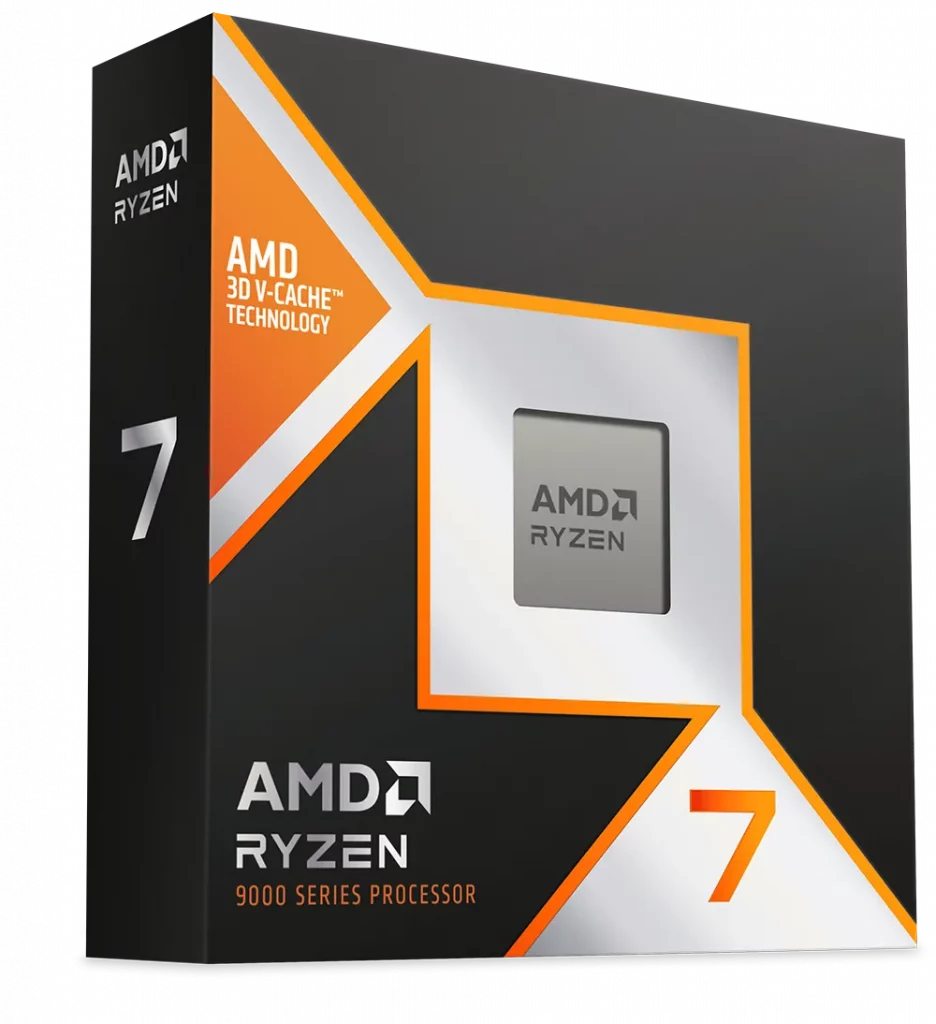
Our benchmarks confirm that the Ryzen 7 9800X3D performs impressively even at stock settings. While its power efficiency aligns with expectations, what sets it apart from all the existing AMD X3D CPUs is that it can now be overclocked to offer users additional performance potential.
However, higher clock speeds increase power consumption and heat, necessitating robust cooling. For those using air cooling, making good use of features such as Curve Optimizer or Curve Shaper can further optimize performance and efficiency.
In gaming, the Ryzen 7 9800X3D stands toe-to-toe with flagship models like the AMD Ryzen 9 and Intel Core Ultra 9. However, its productivity performance shows only marginal improvements over the Ryzen 7 9700X, which is understandable given their identical core and thread counts. Many modern productivity applications still do not fully leverage the extensive L3 cache of the Ryzen 7 9800X3D.
Overall, the Ryzen 7 9800X3D holds significant potential but comes with a suggested retail price of $479, which is relatively high compared to the Ryzen 7 9700X. For general tasks or casual gaming, a more budget-friendly option like the Ryzen 9 9900X—only $20 more—may be more appropriate.


